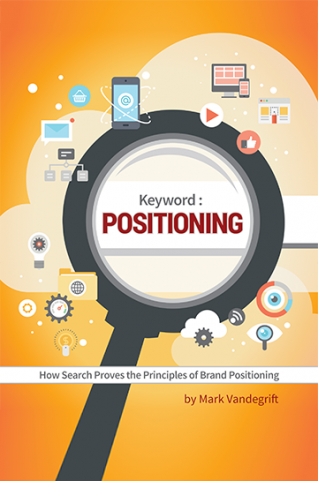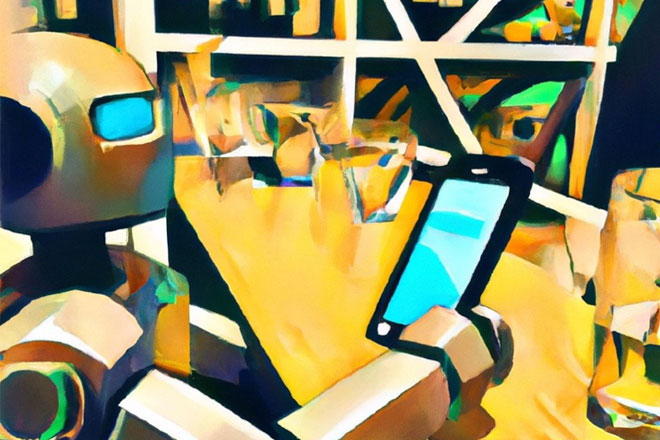If you’ve been around long enough, you remember the days when it was declared, “The internet is going to replace books!” When this was proclaimed, I worked at a book publisher (1993-94), and the owner feared he would be out of business within five years due to this proclamation by the media – the so-called experts. We now have more books than ever and, in more formats than ever. AI-powered marketing is the latest game-changer. It might be the most disruptive force since the internet. However, for those of us alive long enough to hear stories about how TV would replace radio and before that, how radio would replace newspapers, we’ve been there, heard that.
Every new medium or disruptive technology promises to replace the previous, but what happens is that they all find their own level. Consider social media. In just under 20 years, Facebook (2004) normalized the social media space as the giant, but then we were promised replacements: Twitter (2006), Instagram (2010), Snapchat (2011), Pinterest (2011), and then TikTok (2016). None is gone. Instead, they each found their own level. Even MySpace (2003), credited with ushering in social media, is still around, albeit a shell of its former glory.
AI-powered marketing has been around for 20+ years and its latest developments probably don’t surprise many marketers. We’ve used machine-learning-powered, big data marketing tools for a couple decades. Yet, the deployment of OpenAI/ChatGPT and related AI-powered platforms is what has our collective attention. From Elon Musk suggesting a six-month moratorium or some likening it to the atomic bomb, let’s agree that, at most, AI might be equivalent to the Gutenberg press. That’s even pushing it.
Why the apocalyptic decrees? If you listen to enough news or podcasts, you’ve heard it declared that AI will replace the marketer (along with about 300 million other jobs in the western hemisphere). Another article indicated that by 2050, humans will merge with AI and therefore, no longer be humans, but humanoids. This theory is worth the read, but not for those who are easily spooked.
Because of our experience noted above, we’re taking the less-apocalyptic perspective. We believe AI will continue to benefit marketers as it has for the past 20+ years. In a recent article from Bain & Company, marketers are already using AI to enhance several primary functions in their organizations. Of note:
- 47% are using generative AI for customer engagement and service applications
- 42% are using it as knowledge assistants (sales support and internal operations)
- 42% are using it for IT administration such as for help desks
- 39% are using generative AI for content generation and localization, and
- 35% are using it for product development and simulations.
Is the use of AI for these functions eliminating jobs? We contend it has already done so, and those jobs were lost over the past decade. But just like blacksmiths going the way of the horse and buggy, these lost jobs are being replaced by new jobs in new industries and new technologies that didn’t exist a decade ago. The blacksmith became the auto mechanic.
We can look at our own agency for how we’ve shifted over the years. We used to have a full-time associate to enter timesheets, and it took her almost the entire day. We no longer need to do that because of a platform we adopted that allows each associate to quickly record time. How did we re-deploy that position? Into media and digital marketing management.
Another function that has shifted is our production management, which in the agency business means managing print and similar projects. How has that changed since traditional print products have decreased? We have more project management needs because campaigns are now more complex than ever due to media proliferation, marketing technology advancements, and the additional ability to analyze every single marketing tactic we deploy. Have we changed because of technology? Yes, and it has made us better. We can leverage AI-powered marketing to do even better work for our clients.
For those who want a huge dose of optimism, here are the major areas we believe the developments in AI-powered marketing will make the work we do even better and result in better business outcomes for everyone:
- Enhanced audience insights and targeting: When you think “big data,” think amazing speed, allowing us marketers to select audiences to target based on not only enhanced demographics and geography, but also psychographics and firmographics such as preferences, purchase behavior and history, browsing patterns, and more. AI does a much better job identifying patterns in real-time, allowing us to create highly targeted campaigns very quickly. Combined with advanced personalization capabilities noted next, this has the potential to be a real game-changer, one that might finally fulfill the promise of true one-to-one marketing.
- Advanced personalization: One of the struggles of hyper-personalization, which has been promised for well over 30 years, is the need to create personalized content for not only groups of customers, but down to the individual. Amazon has come the closest with its “because you bought this, you might also like this,” but even its capability is incorrect most of the time. AI-powered marketing is promising advanced personalization the likes of which we have yet to see, so we’re excited to see if content development can be created and then, to find out if it sells more widgets.
- Chatbots: This technology has existed for at least a decade, but because it has traditionally been driven by human input, it has lacked widespread adoption. We lack the ability to anticipate every single question or situation another human may ask, so we’re naturally limited in our ability to input responses to every possible question. However, like most technology, it has incrementally improved. With AI-powered marketing tools and machine-learning advancements, we anticipate chatbots to rev up significantly in the coming year or two because the very interface of ChatGPT works just like a chatbot (hence, the name ChatGPT). ChatGPT’s ability to go out and find answers and return results that emulate human speech and thought is advancing very rapidly. This the greatest promise of ChatGPT to date.
Each one of the above, plus many other promised advancements, has applications we can’t even conceive yet. That excites us. Are there concerns? Yes. But we like the temper with which Bain & Company’s article noted above dealt with the risks: “Concerns include the safety of customer data and the threat to jobs. Copyright is a gray area too. That’s not just because the technology can reuse existing material in a way that breaches the intellectual property rights of human creators. It’s also unclear how much marketers will be able to assert copyright over content generated via the latest AI tools. Other potential hazards in AI-powered marketing include inaccurate content and unintended bias.”
This doesn’t feel like the sky is falling and is tempered reasoning about real concerns. Count us on board with this thinking and our hope that this is just another disruption we’ve seen and heard before. None of us wants anyone to lose a job, but like the examples above, we anticipate new jobs will be created if, and when, others are lost. It’s the cycle of our economy and an expected result with any introduction of new technology.
Conversely, if you choose to assume the worst, then run to your bunkers because the apocalypse is upon us … ChatGPT marketing will be the least of your concerns! To learn more about how Innis Maggiore is using AI-powered marketing, contact us today. We’ve tested ChatGPT and other platforms and have concerns about adopting its use too soon. However, we like some of the outcomes, such as the image of this post which was generated by Dall•E 2 by entering “a robot commenting on a social media post while sitting at a bar, impressionist style.” Pretty good, eh?



